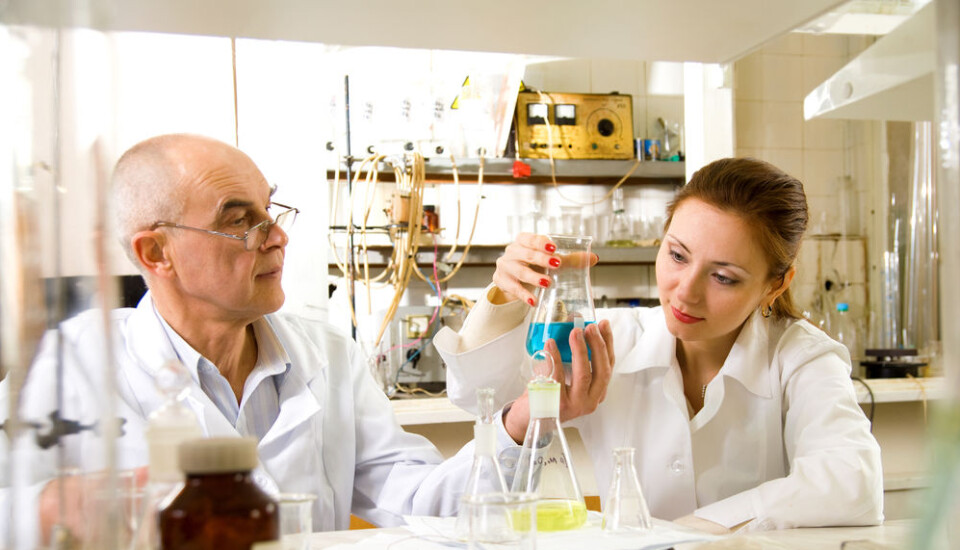Researchers' Zone:

Are we getting enough out of PhDs?
Universities invest millions in educating PhD's, but many of them do not continue in a career in research. How do we ensure the best return on this investment for society?
1,5 million Danish Crowns or 200,000 Euro.
That is how much a PhD in the health sciences costs on average in the three-year PhD programme.
Everyone can probably agree, that society should get the best possible return on this investment. However, currently we do not have a definition of what the expected investment return is.
We have published a study, where we analysed national data on research publications to find out the extent PhDs continue to publish after completing their PhDs.
The aim was to investigate how many PhDs remained scientifically ‘active’ after they completed the PhD programme. In other words: How much science are we getting for our money?
Every fourth health science PhD continues in research
Our study is a collaboration between the Department of Information Studies at Copenhagen University and Copenhagen University Hospital Herlev-Gentofte.
The study is interesting because in February 2017 the Ministry of Higher Education and Science presented a report about the quality and relevancy of the PhD education, including a smaller report specifically discussing health science PhDs.
The report did not address the scientific impact or effect of the PhDs work, but instead focused on the competences one gets as a PhD student, and how the competences align with those that potential employees are looking for.
In our study, we focused on the scientific impact or effect of the PhDs work. We have investigated all 532 Danish health science PhDs from 2005 and 2006.
Our results show that nearly 26 percent continue to publish regularly and are scientifically active after they have completed the PhD programme.
31 percent do not produce any publications at all
We defined being scientifically active as producing on average two articles per year, which is expected for an active researcher in the health sciences, more details to follow.
Notice, the definition of authorship on a paper is not limited to those who are typically seen as the significant authors, the first and the last author. The definition includes any author position on any type of scientific paper.
In the health sciences it is generally accepted that first authors are considered more significant, as the first author usually represents the project leader through all phases of the research and the last author is the organiser and supervisor.
To ensure that the scientific publications we included in our study, were not part of the recently defended PhD, we defined a quarantine period, that ran for four years after the PhD defence.
The study thus counted the PhDs publications five to nine years after the PhD was completed.
In the five-year period, PhD-graduates were to publish at least 10 articles to be considered active in research. The data showed, that 31 percent of the PhDs in our study, did not produce any articles at all after the PhD defence, while 43 percent produced between 1 and 9 articles in the 5-year period.
In total, the 532 PhDs authored 4,530 articles within the 5 year period we studied and each of the PhD-graduates had produced between 0 and 92 articles.
The PhDs that continue to publish become principle investigators
Our study also shows that the PhD graduates who continue to publish, increasingly contribute as principle investigator on research articles. That is, their role on the author-byline shows a change in author position from first to last author and consequently indicates a change in seniority.
The last author is often the person, who owns and manages the project. This assumption fits well with the ambition of the Danish PhD-education. PhD-graduates should develop the competences to be research leaders (principle investigators).
With a PhD in the health sciences follows a network. This means that the opportunity to contribute to scientific works can present itself unexpectedly. However, to be an active researcher, one cannot rely on the unexpected but must have a research plan and strategy to ensure research production.
A research plan will typically result in two or more publications annually, which is why we set our benchmark to an average of two publications per year.
One could argue that the benchmark is too high. However, we did not quality assess all the articles in our data set, but included all articles published in the bio-medical science literature database PubMed as an indication of international research activity and to some extent an indication of quality.
The majority of the articles in PubMed have passed a peer review process, but one might also argue our benchmark is too low with regards to the quality of the publications as all publication-types are included.
Other forms of value
It is important to emphasize that PhD graduates deliver many other forms of valuable impacts, not just scientific publications.
The PhD-education equips the graduates with methods, theories, knowledge and competences that give them insight and the ability to take action in many different situations.
They are for example adept in developing national and local guidelines for patient treatment; they are active in education and teaching; they undertake research in private companies, and help clinicians retain a critical approach to results and recommendations in research.
All these other impacts and investment returns from PhDs are highly relevant for society, patients and citizens, but they play no part in our current study.
The type of societal impact and return of investment from PhDs would be relevant to take a deeper look at in a future study.
We have only just started understanding the PhD-lifecycle and our study is limited to one form of scientific activity, i.e. scientific publications.
Better conditions for PhDs will result in a better return on investment
Globally, there is a fundamental lack of knowledge about the scientific ‘return on investment’ for society from PhD-graduates.
We cannot conclude whether Denmark is performing better or worse than other countries when it comes to scientific production from PhD-graduates. We simply do not have the data to make a comparison.
However, as a society, we should ask ourselves, if we are recruiting the right people into the PhD-education, when only one out of four remain research active five to nine years after completing the PhD programme.
Do people begin a PhD because of a genuine interest in a career in research or as a mean to further their own career in the health sciences?
It is also essential that positions for the PhD-graduates actually exists, and that PhD-graduates can get positions that allow them to use and develop their research competencies.
In other words, it is of utmost importance that opportunities and work conditions exist that allow PhD-graduates to return our investment in their PhD-education.
Read this article in Danish at our Danish sistersite Forskerzonen.
References
- Kim Wildgaards profile (Researchgate)
- Lorna Wildgaards profile (Universitu of Copenhagen)
- "Continued publications by health science PhDs, 5 years post PhD-Defence", Research Evaluation (2018) DOI: 10.1093/reseval/rvy027
- Ph.d.-uddannelsens kvalitet og relevans', report by the Danish Ministry of Education and Research (2017)
- Undersøgelse af den lægevidenskabelige ph.d.-uddannelse', part of a report by the Danish Ministry of Education and Research (2017)





